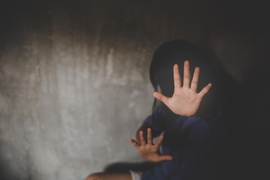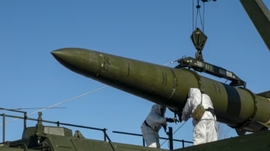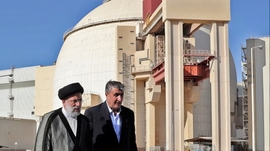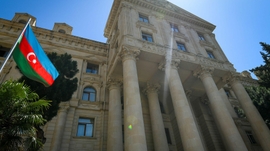“I was just a bullet away from being killed by the Soviet soldiers, while my fellow compatriot couldn’t escape the death and fell in a blink of an eye,” Yaver Mehdisoy, a 58-year-old Baku resident said while recalling the incursion of the Soviet army into Azerbaijan’s capital Baku in 1990.
“That night resembled a horror movie that featured hundreds of thousands of innocent people versus ruthless armed mercenaries,” Mehdisoy told Caspian News, referring to the brief but scarring period from January 19 to 20 nearly four decades ago.
Azerbaijanis have marked every January 20 since that bloody night in 1990, by paying homage to the victims of Soviet repression, as the USSR was in its dying throes. More than 140 Azerbaijanis were killed, around 800 injured, and dozens went missing in what some describe as a pogrom against Azerbaijanis, a term reserved for the deliberate persecution on an ethnic or religious grounds sanctioned by the state or local authorities.
The day has various names: some call it “Black January,” others “Black Saturday,” and still some others “Bloody January.” Regardless of the term used, all remember January 20 as a date associated with horrible events for an entire nation located on the western shores of the Caspian Sea and once part of the USSR.
In early January 1990, new large-scale waves of anti-Soviet protests broke out in different regions and cities across Azerbaijan, with the coastal capital of Baku being their epicenter. Azerbaijanis felt Moscow had turned a blind eye to the parliament in Armenia – also part of the USSR at the time – which had voted on January 9 to include the Nagorno-Karabakh region of Azerbaijan in its budget plans. The Armenian parliament was disregarding both Soviet authority and Azerbaijani jurisdiction by allowing ethnic Armenians living in Azerbaijan's Nagorno-Karabakh region to vote in domestic polls.
By January 17, residents of Baku flocked into the streets, began marching and chanting slogans against the Soviet rulers in Moscow and the Central Committee of Soviet Azerbaijan.
Two days later, General Secretary of the Soviet Communist Party Mikhail Gorbachev and Defense Minister Dmitry Yazov imposed martial law, saying it was necessary to thwart independence movement of Azerbaijanis. Soviet tanks rolled into Baku, all before a state of emergency was declared. In pre-emergency circumstances, the Soviet soldiers killed around 100 innocent residents of Baku.
By midnight on January 20, an emergency situation was announced and a curfew was imposed. Soviet forces had killed more than 20 Azerbaijanis during the curfew hours and by morning. Unrest also rocked the cities of Neftchala and Lankaran in the south, where eight people fell victim to Soviet bullets on January 25 and 26.
“They [soldiers] were firing at anyone and anywhere along their way,” recalled Mehdisoy. “A light in the window of a house was enough for it to be fired at by machine guns. It became almost impossible to escape a bullet shot wherever a large numbers of soldiers gathered together, especially in the city center.”
In addition to the death toll and number injured, over 840 people were arrested, 200 houses and apartments were destroyed; and 80 cars, including ambulances, were annihilated by Soviet tracer ammunition and tanks.
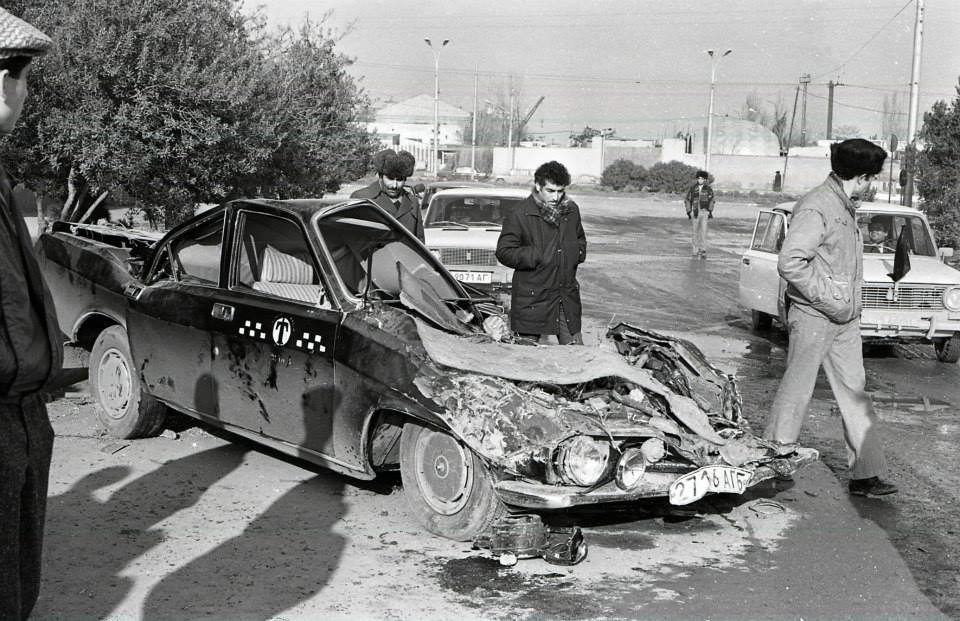
Despite the horrors, Azerbaijanis see a silver lining around the cloud of Black January. The date also symbolizes the heroism of the Azerbaijani nation. Many believe the resistance to Soviet authority had laid the foundation for the modern country’s independence from the collapsed Soviet Union a year later, in 1991. Millions of people visit the Alley of Martyrs, a cemetery in which the victims of the January 20 events are buried, on this day every year to honor the memories of what are considered the founders of independence.
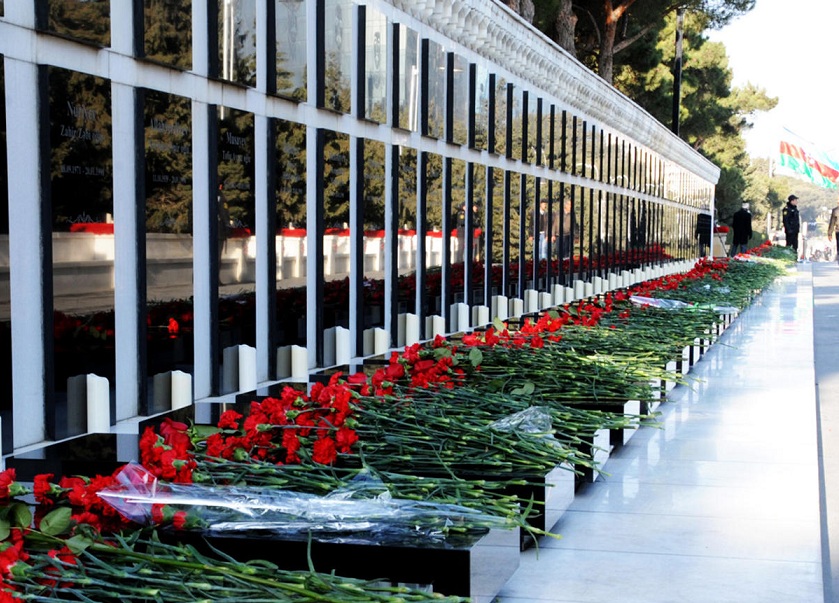
“There were similar confrontations in Baltic states and Georgia; however, the events in Azerbaijan were larger and more brutal in comparison to others,” Ikram Aghasiyev, a historian at the Azerbaijan National Academy of Sciences told Caspian News.
“The goal was to intimidate other nations under the decaying Soviet rule. Moscow tried to deliver a message to others that if they uprise too, they will face the same ruthless crackdown,” Aghasiyev said.
“Our people won the fight. So, January 20 events should not be recalled as a tragedy anymore today. This is a page of heroism in our history. People’s bare-handed resistance against armed soldiers and tanks is a real proof of valor.”


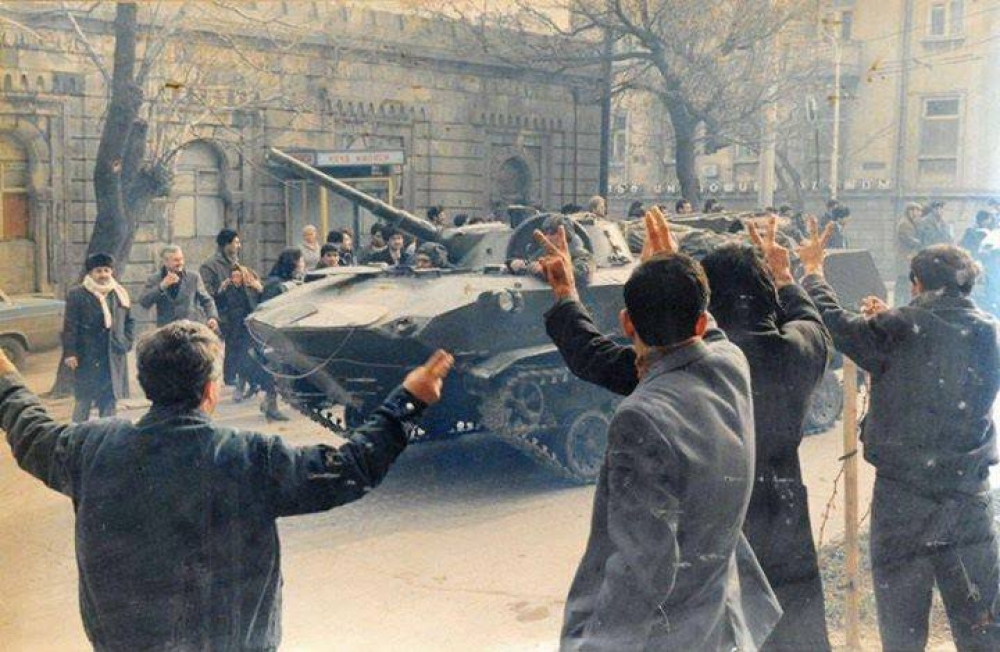




 The Kazakhstan Foreign Ministry has responded to the allegations of domestic violence against one of its diplomats stationed in the United Arab Emi...
The Kazakhstan Foreign Ministry has responded to the allegations of domestic violence against one of its diplomats stationed in the United Arab Emi...
 Iran confirmed that Afghanistan's first transit rail cargo has left for the Razi border crossing, in the country’s northwest region, following a ha...
Iran confirmed that Afghanistan's first transit rail cargo has left for the Razi border crossing, in the country’s northwest region, following a ha...
 Russia is set to conduct military exercises to practice the preparation and deployment for use of tactical nuclear weapons in response to the “prov...
Russia is set to conduct military exercises to practice the preparation and deployment for use of tactical nuclear weapons in response to the “prov...
